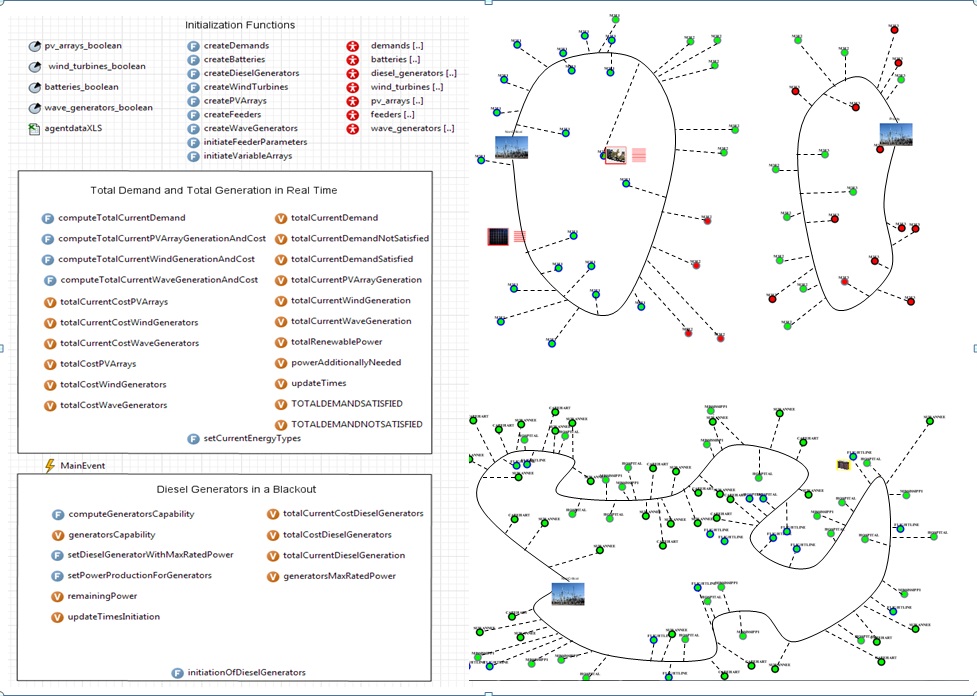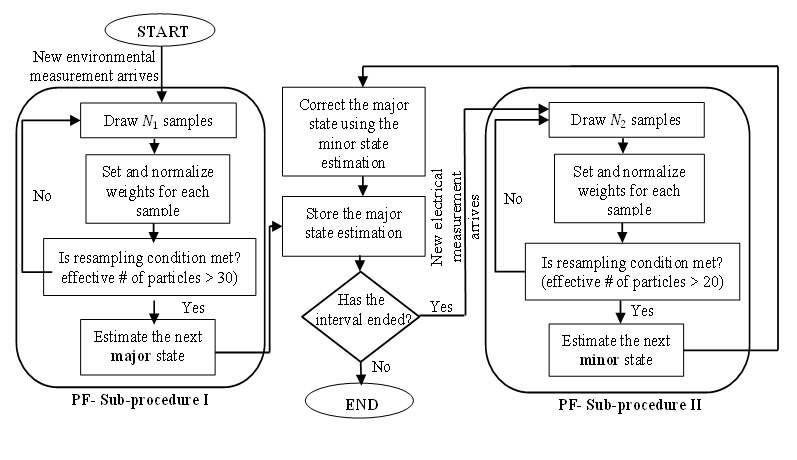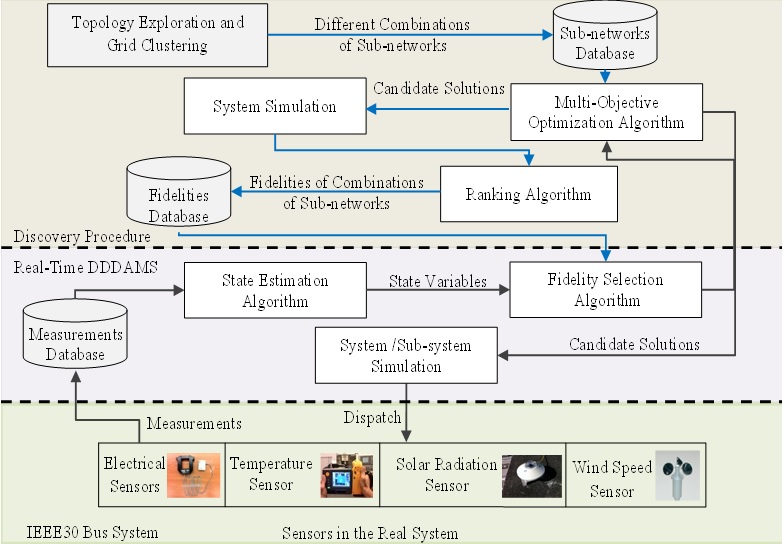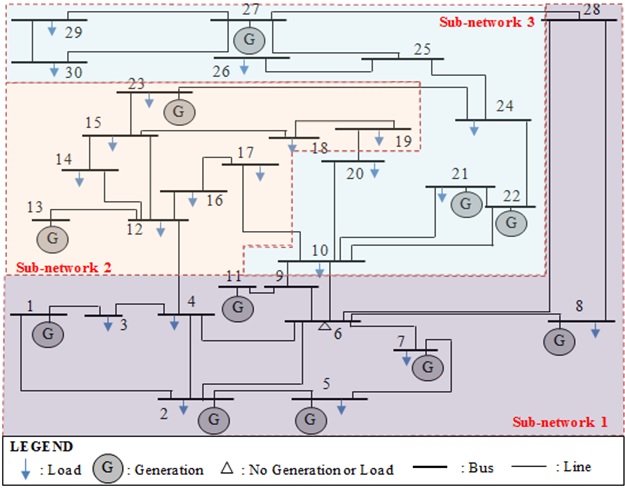In this study, we address the design ranking and selection problem in MG simulations from a set of finite alternatives in the presence of stochastic constraints. Each design encapsulates a different level of control of the segregation mechanism within the system, and a performance function measured as a combination of the incurred cost and energy surety. Building on this performance function, optimal computing budget allocation (OCBA) method is used to efficiently allocate simulation replications for selecting the best design with significant accuracy and reasonable computational burden. Computational results on a multi-scale MG test-bed have shown that OCBA algorithm outperforms equal and proportional to variance allocation of replications.

In this work, we introduce a particle filtering algorithm for online state estimation of microgrids. The proposed algorithm is fed by a database receiving data from electrical and environmental sensors in real time. The performance of the proposed algorithm is first validated through synthetic experiments. Then, the experiments are conducted using real data obtained from a benchmark low voltage microgrid. The initial experiments are conducted on state estimations of MGs in terms of power injections.

In this work we investigate a novel real-time dynamic data driven adaptive multi-scale simulation framework (RT-DDDAMS) for efficient real-time dispatching of electricity. The framework includes a discovery procedure where the network is split into sub-networks and prospective fidelities are identified, an RT-DDDAMS platform involving algorithms for state estimation, fidelity selection, and multi-objective optimization alongside with a system simulation; databases for storing sub-network topologies, fidelities, and selective measurements. The proposed framework is illustrated and validated via a modified IEEE-30 bus test system. The experiments reveal that the proposed framework significantly reduces the computational resource usages needed for the reliable power dispatch without compromising the quality of the solutions.









